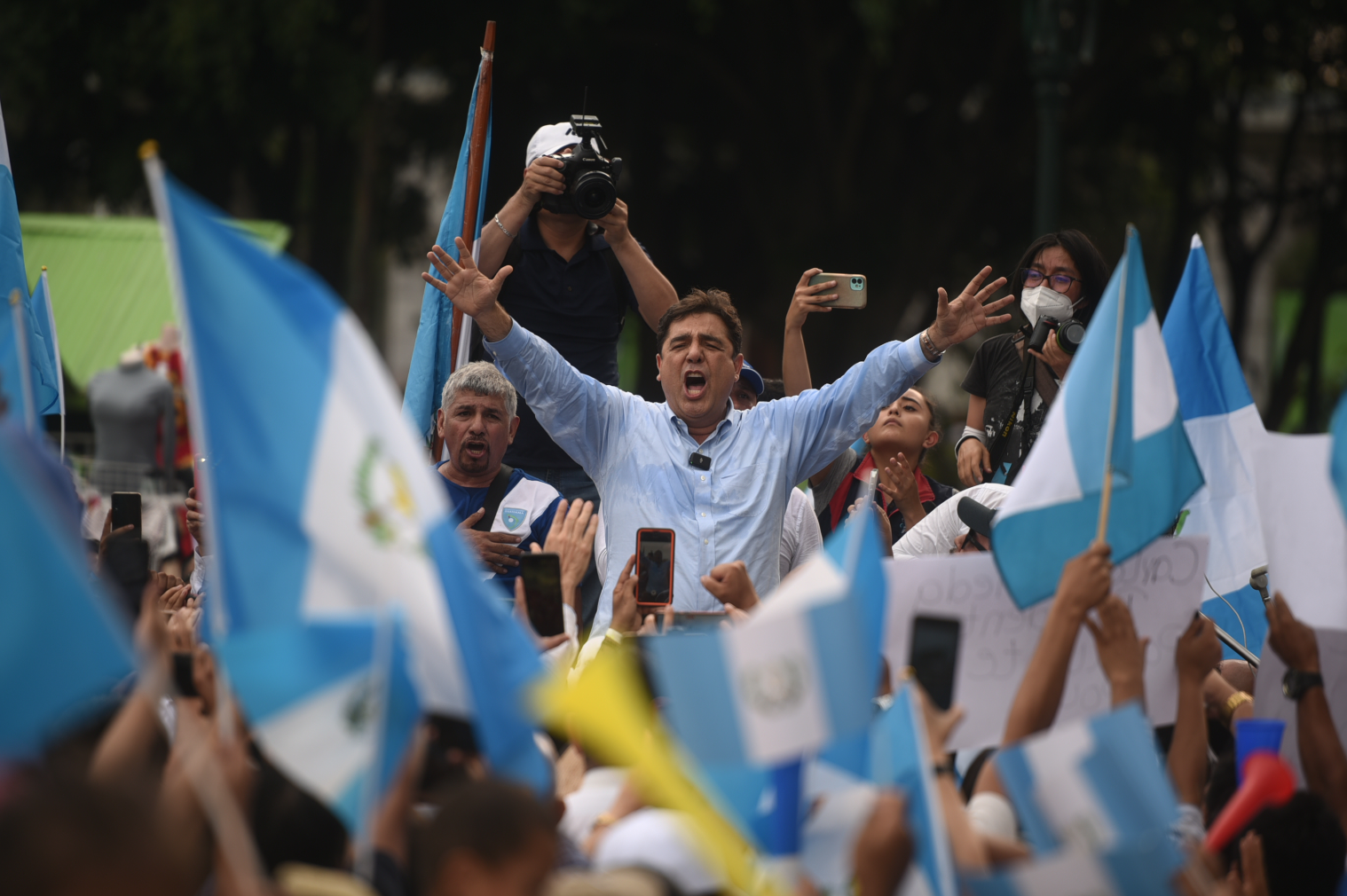Carlos Pineda, until recently the presidential candidate in Guatemala with the highest voting intention, expressed his surprise at the fact that the party for which he was running, Prosperidad Ciudadana, desisted from supporting him in his appeal before the Constitutional Court. Without hiding his frustration for being left out of the June 25 elections due to a judicial sentence, he assured that he did not know “what the party was playing at”. The presidential candidate insisted that he always said that he was not part of the party and that he did not understand the behavior of its members.
The relationship between leadership and parties is a long-standing issue in politics that is exacerbated in presidential regimes. Direct presidential election by the citizenry blurs the intermediary role played by parties in parliamentary regimes, which, however, is solidly maintained in other avatars. Parties in Congress play relevant roles in the legislative process, in appointments to higher level positions and in tasks of government control. There is, therefore, a game in different spheres that, in the case of the frustrated candidate Pineda, causes perplexity for understanding that the script does not run as they would like it to.
The current political contest in a good number of Latin American countries presents a game model in which the major leadership, assumed by the presidential figure, imposes itself unrestrictedly in the face of partisan conditioning factors. The will of the president is a burden on any supposed fickleness of the group and does not understand that there are rules or strategies that can limit it. Nevertheless, the articulated game has a certain complexity and today establishes three models that entail different implications
The first one follows the pattern in Mexico and El Salvador where their presidents, Andrés Manuel López Obrador and Nayib Bukele, both currently have the highest popular approval ratings in the region and vertically manage their respective parties created by themselves. As the prestigious media El Faro points out, the Salvadoran party Nuevas Ideas is “a brand, a creation, to admire and venerate itself”. It constitutes a manifestation of initiates that has Bukele as its “pinnacle, sustained in absolute and fiducial loyalty, where negligence is qualified as impiety”. Every day, more than one hundred videos are produced on YouTube promoting and boosting the image of the president and attacking and destroying all obstacles, with a high rate of efficiency in terms of reproductions and views. An assessment that is useful for López Obrador who, moreover, since he cannot be reelected, is preparing in the next months to control his succession within his formation, Morena, whose function is similar to that of Nuevas Ideas.
The Dominican Republic, Bolivia, Honduras, Nicaragua and Venezuela follow a similar path, although democratic performance is not present in the last two. The Revolucionario Moderno Party, the Movimiento al Socialismo, LIBRE, the Frente Sandinista de Liberación Nacional and the Socialista Unido Party of Venezuela, respectively, are the instruments of political action of Luís Abinader, of Luís Arce, even with serious internal control problems; of the couple formed by Xiomara Castro and Mel Zelaya; of Daniel Ortega and of Nicolás Maduro. All of them were at the founding moment of the party that today is the main instrument for the exercise of their power.
The second scenario depicts a scenario in which the president manages to put together a coalition on the basis of his meager party with uncertain success in terms of the issues that need to be taken forward. This is the case of Argentina, Brazil, Chile, Colombia, Guatemala, Panama, Paraguay and Uruguay. In these countries, a fundamental variable is related to the maturity and consolidation of the party system in order to maintain a minimum stability in terms of governance of the system. Uruguay stands out for its high level of institutionalism, which, however, does not prevent the existence of certain tensions. Paraguay is also an exception due to the longevity of the ruling and preponderant Colorado Party.
Colombia is an interesting case where the unstable balance is unraveling as the Party of the U, with 11 senators and 15 representatives, has decided to officially leave the legislative coalition of Gustavo Petro’s government and declare itself independent. A decision that came shortly after the Conservative Party, with 15 senators and 25 representatives, did the same and distanced itself from the broad coalition built by Petro during the first months of his mandate and which had allowed him to approve the tax reform and the total peace law, among others.
The third model is defined by the presidents of Costa Rica, Ecuador and Peru, who have neither managed to have their own political capital nor have a party with significant strength in Congress. While the latter two have suffered grave crises, which have led to the calling of elections with the open scenario of the interim presidency of Guillermo Lasso and the replacement of President Pedro Castillo by Vice President Dina Boluarte, in Costa Rica, the government of Rodrigo Chaves is languishing, sustained only by the hitherto solid nature of the Costa Rican political system.
These are models that evidence the heterogeneity of politics in the region around a tortuous game whose nature, as opposed to aspects of an institutional nature, enthrones individual talents in which narcissism and incompetence have a strong influence. Politics focuses almost exclusively on the actions of specific individuals with an unleashed drive for power and excludes the routinized behaviors that shape institutions. Therefore, it should not be strange that those who hold power, or are close to it, play a different game from the rest: their own.
*Translated from Spanish by Micaela Machado Rodrigues













